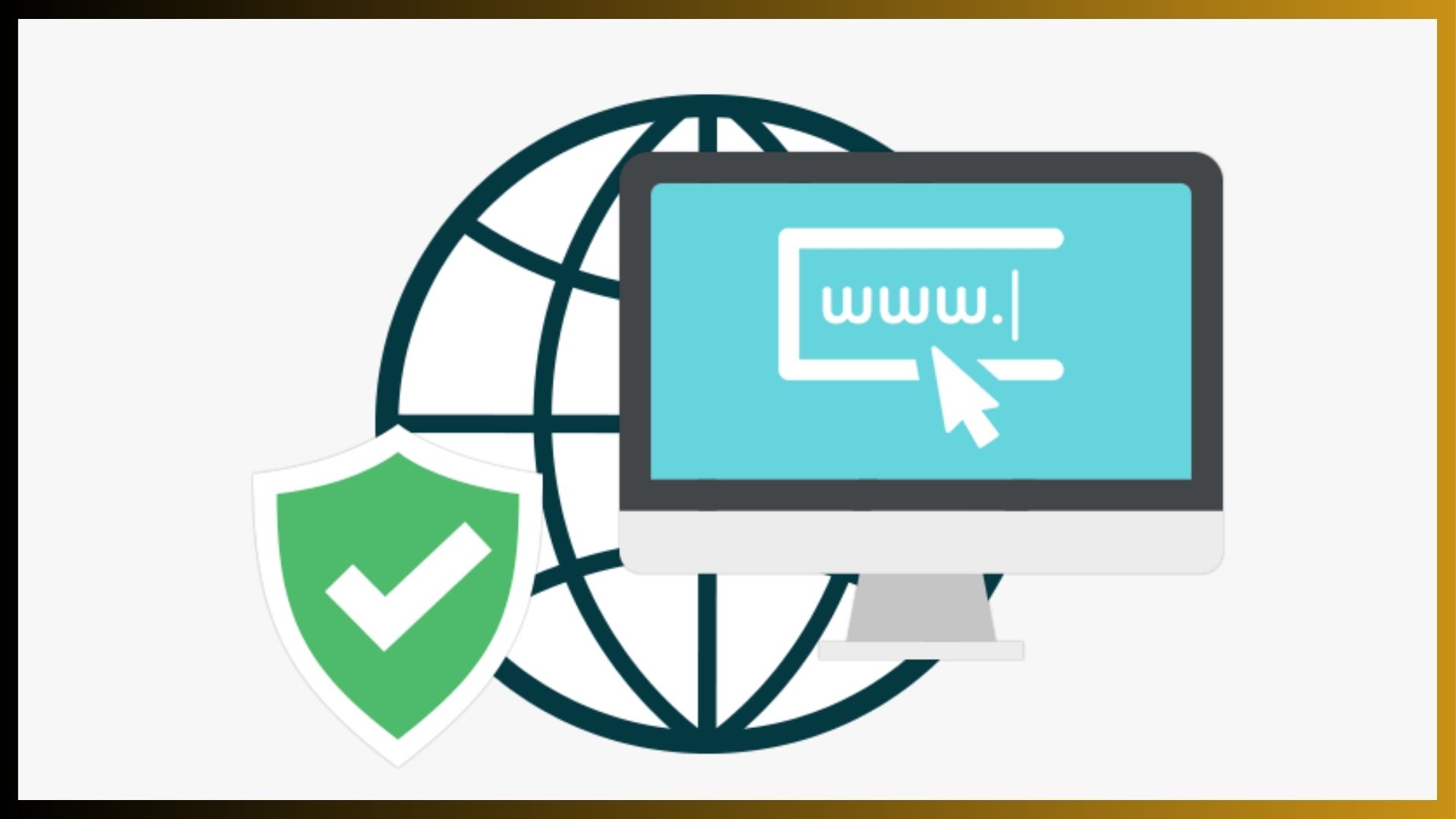At the end of Q1 2025, the total number of registered domain names worldwide reached approximately 368.4 million (DNIB Quarterly Report Q1 2025), a clear indicator of the digital economy’s ongoing expansion.
With businesses of every size investing in their online presence, the ability to efficiently manage these domains has never been more critical.
Web hosting companies and domain resellers handling thousands of domain names, as well as digital agencies overseeing a handful of client projects need to implement domain management practices.
Below, we’ll guide you through core concepts, essential best practices, and actionable strategies designed to help you maintain security, control, and value across your domain portfolio.
What is domain management and why is it important?
Domain management is the strategic and operational process of overseeing domain names throughout their lifecycle, from registration and DNS configuration to renewal, domain transfer, and protection.
For businesses, especially those in the digital services and hosting industries, domains are brand anchors, trust signals, and revenue enablers.
Poor domain management can lead to severe issues: from service downtime due to missed renewals, to lost customers, weakened brand reputation, or worse, security breaches from hijacked domains.
On the other hand, strong domain management ensures business continuity, compliance with global standards like ICANN regulations, and better ROI through streamlined operations.
For agencies, web hosters, and IT service providers, it also adds value for their own customers, ensuring domains are always active, secured, and aligned with business goals.
Essential domain management best practices
Effective domain management goes beyond registering a name and pointing it to a website. It involves maintaining full control over your domain portfolio, minimizing risk, and ensuring ongoing compliance and performance. Here’s an overview of the foundational best practices every digital agency, web host, or domain reseller should follow:
1. Stay on top of renewals and expiration prevention
One of the most common (and avoidable) issues is domain expiration. Automating domain renewals and setting up early alerts can prevent service interruptions and loss of ownership. Domain expiration prevention is especially critical for agencies managing multiple client domains.
2. Centralize DNS and domain registration management
Consolidating your domain portfolio and using a unified platform for DNS management and domain registration management simplifies operations and reduces human error. It’s also a time-saver for resellers handling hundreds of transactions monthly.
3. Apply domain security and WHOIS privacy measures
Secure your domains with features like domain locking, WHOIS privacy, and 2FA access for your registrar accounts.
Explore more about advanced security measures in the section below.
4. Ensure ICANN and domain compliance
Managing a domain portfolio means staying aligned with ICANN compliance rules, covering registrant data accuracy, renewal policies, and domain ownership records.
Non-compliance risks suspension or legal liability, especially for businesses operating across borders.
5. Streamline through automation and reporting
Automation tools enable efficient reseller domain management, from bulk operations to DNS updates and renewal tasks. For tech-savvy teams, API-driven automation delivers scalability and improved portfolio oversight.
Advanced domain security practices
Applying targeted security measures can reduce vulnerabilities and protect your entire domain portfolio.
The following are critical areas of focus for advanced domain security:
Implement SSL certificates
SSL certificates are essential to encrypt data between the user and the server, securing everything from login credentials to payment transactions.
They are also a ranking factor in Google’s algorithm, meaning domains with valid SSL certificates are more likely to appear higher in search results.
According to SSL Pulse’s June 2025 report by SSL Labs conducted on 134,780 websites, 71.3% of them are secure, leaving nearly 39,000 sites with inadequate SSL protection.
SSL Pulse – last updated on 2nd June 2025
Gaps like this one represent both a risk and an opportunity for service providers and agencies: helping clients secure their sites boosts trust, improves compliance, and adds measurable value.
Do you want to resell SSL/TLS certificates? Discover our Premium SSL solutions and start to increase your margin from day one.
Best practices for SSL management:
- Use at least a DV (Domain Validation) certificate for basic sites, while e-commerce or sensitive services should opt for OV (Organization Validation) or EV (Extended Validation).
- Ensure certificates auto-renew to avoid sudden security warnings or SEO penalties.
- Monitor certificate expiration and enforce HTTPS across all pages.
- Offer bundled SSL as part of your client packages to streamline compliance and security.
Domain locking and transfer protection
Domain hijacking and unauthorized transfers can happen when a registrar account is compromised or when domains are not properly locked.
What is domain locking?
Domain locking prevents your domains from being transferred without your explicit authorization. It’s a simple but powerful layer of protection that is often underused.
Guidelines for effective domain locking:
- Always enable Registrar Lock for all active domains.
- Set alerts for any status changes on high-value domains to get prompt notifications in case of unauthorized actions.
- If you manage domains for clients, use role-based access to separate who can unlock or initiate a transfer.
Two-factor authentication (2FA)
Using only a password to protect registrar access is no longer safe.
Two-factor authentication (2FA) adds a critical second layer of protection (typically a time-based code or device confirmation), ensuring only authorized users can make sensitive changes.
Why 2FA matters:
- It drastically reduces the risk of brute-force attacks or password theft.
- It’s a basic requirement for compliance with most security standards and frameworks.
Best practices for implementing multi-layer security:
- Enable 2FA on both your registrar and reseller platforms.
- Use app-based authentication (like Google Authenticator or Authy) instead of SMS, which is more vulnerable to interception.
- Apply user role restrictions, especially for domains with financial or strategic importance.
Leveraging automation for domain management
For resellers, web hosters, and digital agencies, reducing manual work, minimizing errors, and streamlining repetitive tasks depend on automation.
Why automation matters for domain professionals
Managing domain lifecycles manually can lead to missed renewals, DNS misconfigurations, and inconsistent portfolio oversight, especially when working across multiple registrars or client accounts.
Automation solves these pain points by introducing consistency, reducing the risk of human error, and freeing up technical resources.
Key automated processes to implement:
- Renewal notifications and auto-renewals:
Use systems that automatically notify your team (or clients) ahead of domain expiration and allow for domain auto-renewal. This is one of the simplest ways to strengthen domain expiration prevention and avoid costly downtime or ownership loss. - Automated DNS updates:
When integrated with a powerful API or platform, DNS management and record updates can be partly or fully automated as part of website deployments or service changes. This reduces ticket volume and ensures DNS changes are applied accurately and quickly. - Domain expiration alerts and reporting:
Enable real-time monitoring and reporting to track expiration dates, status changes, and compliance risks. These insights are especially useful for reseller domain management where oversight is crucial for maintaining client trust and operational integrity.
Choosing the right domain management platform
The tools you use to manage your domain portfolio can make or break your efficiency, security, and scalability. Whether you’re a digital agency, web hosts, or freelance developer, selecting the right domain management platform is essential to delivering consistent results and growing your business.
What to look for in a domain registrar platform
- Ease of use:
A clean, intuitive interface helps reduce training time and allows teams to manage domains, DNS records, and renewals quickly, even without deep technical knowledge. - Competitive pricing:
Especially for resellers and agencies, access to cost-based pricing models through Openprovider’s Membership plans improve margins and ROI. - Security:
Look for built-in security tools like WHOIS privacy, two-factor authentication, and domain locking to protect sensitive assets. - API access and automation capabilities:
For customers managing large portfolios or integrating services into custom portals, API flexibility is critical. - Responsive customer support:
Downtime or issues can happen: what matters most is having a registrar who responds fast. Dedicated support and onboarding resources are essential, especially when managing clients at scale.
Buy Domain Names :: https://yi.com.pk/service/domain-registration/
We’re just a message away—WhatsApp our consultant @ +92 346-240-9866




